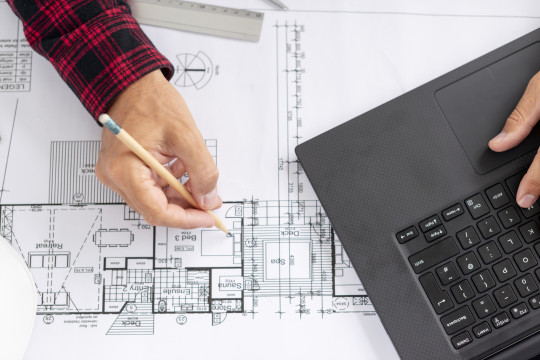Don't wanna be here? Send us removal request.
Text
Step-by-Step Guide: How to Estimate Construction Costs for a New Home

Accurately estimating construction costs is essential when planning to build your dream home. Understanding and calculating these expenses helps in making informed financial decisions and avoiding unexpected surprises. Here’s a detailed, step-by-step guide on how to perform a thorough construction cost estimate for your new home.
If You Need more Information about cost Estimations, visit this Website -> https://uniqueestimations.com/new-york-construction-estimating-services/
1. Understand the Types of Construction Cost Estimates
There are different methods for estimating costs depending on the stage of your construction project:
Preliminary Estimate: An early-stage estimate based on basic information.
Detailed Estimate: Involves itemized costs for materials, labor, permits, and more.
Bid Estimate: Prepared by contractors and includes detailed pricing for project execution.
Selecting the right construction cost estimator for your project depends on your project’s complexity and accuracy needs.
2. Define the Scope of Your Project
To start estimating, it’s important to clearly outline:
Square Footage: Determine the size of the home.
Design Complexity: Architectural style and special features add complexity and cost.
Quality of Materials: Decide between budget, standard, or high-end finishes.
Having a well-defined project scope ensures that your cost estimation in construction is accurate and reliable.
3. Calculate Material Costs
Material costs often constitute a significant portion of new construction estimating costs. Factors to consider include:
Foundation Materials: Concrete, steel reinforcements, and formwork.
Structural Components: Wood, steel, or concrete framing.
Exterior Finishes: Siding, roofing materials, and insulation.
Interior Finishes: Flooring, drywall, cabinetry, and paint.
Consulting local suppliers and utilizing a construction cost estimator can help you get current pricing.
4. Account for Labor Costs
Labor expenses can vary widely based on your location, the size of your project, and the expertise required. Common roles involved include:
General Contractors: Manage the entire construction project.
Specialized Contractors: Focus on plumbing, electrical work, and HVAC installation.
Skilled Laborers: Carpenters, masons, and roofers.
Make sure to factor in wages, benefits, and potential overtime when estimating construction costs for labor.
5. Include Permits and Legal Fees
Local regulations often require permits for various aspects of home construction, including:
Building permits
Plumbing and electrical permits
Environmental impact assessments
Research the requirements in your area and budget accordingly to avoid delays or fines.
6. Don’t Forget About Utility and Site Preparation Costs
These expenses cover tasks that prepare the land for construction and ensure the home is connected to essential services:
Site Clearing and Excavation: Removing vegetation and leveling the site.
Utility Hookups: Connecting water, sewer, gas, and electricity to the property.
Driveway and Landscaping: Installing access roads and outdoor spaces.
Including these in your construction estimating costs ensures you capture the full scope of expenses.
7. Estimate Plumbing and Electrical Costs
Specialty work like plumbing and electrical installations requires detailed estimates. Utilize a new construction plumbing cost estimator to calculate the expenses for:
Plumbing: Pipes, fittings, and fixtures for kitchens, bathrooms, and outdoor areas.
Electrical Systems: Wiring, outlets, switches, and lighting installations.
These components are critical to home functionality and should be accurately budgeted.
8. Factor in Contingency Costs
Unexpected expenses often arise during construction. To mitigate financial strain, allocate:
5% to 15% of Total Budget: For unanticipated changes or issues.
Price Fluctuations: For materials and labor due to market conditions.
Including a contingency buffer is essential for realistic cost estimation in construction.
9. Use Construction Cost Estimating Tools
Modern technology makes it easier to get accurate estimates with tools such as:
Online Construction Estimators: Provide quick preliminary cost insights.
Software Programs: Offer detailed and customizable reports.
Professional Services: Hiring a professional estimator can add precision and expertise.
Selecting the right tool depends on your project’s complexity and your need for accuracy.
10. Review and Adjust Your Estimate Regularly
As your project progresses, costs may change. Continuously updating your estimate ensures that your budget remains accurate and relevant. Factors to reassess include:
Changes in material prices
Design adjustments
Project delays
Regular reviews help maintain control over your estimating construction costs and prevent budget overruns.
Final Thoughts
Accurately estimating construction costs for a new home requires careful planning, detailed calculations, and regular monitoring. By following these steps, you can confidently manage your budget and make informed decisions throughout the construction process.
If you want to read more information about construction cost Estimation Website just visit --> https://uniqueestimations.com/new-york-construction-estimating-services/
#Unique Estimations#Cost Estimation#construction cost#new home cost#resturants cost#construction labor cost estimator#cost estimation for road construction
2 notes
·
View notes